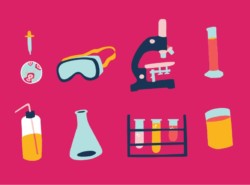
Understanding how hormones (particularly progesterone) influence breast cancer risk
Published: 10/9/19 1:48 AM
Heidi Hilton
The ovarian hormones, estrogen and progesterone, are critical in normal development of the breast, but are also major drivers of breast cancer risk although the precise details of how remains unclear.
Cancer can be viewed as abnormal development in which regular developmental mechanisms have gone awry. To prevent cancer, a key approach is to define these normal mechanisms and determine how they are corrupted during early cancer formation.
In this project Dr Heidi Hilton will document cell types in the normal breast across the whole of reproductive life, and by identifying the impact of hormones on these cell types, she aims to draw a link between hormone exposure, the presence of hormone receptors for estrogen (ER) and progesterone (PR), and the switching on/off of cellular pathways that may be harmful to these cells. This is important, as the detection of ER and PR in new breast cancers is crucial to decisions about treating these cancers.
Dr Hilton’s recent data shows that ER and PR are found in different cells in the normal breast, but can also be found in cells, called progenitors, that are thought to be susceptible to the first cancer-causing activity. She and her team have shown that progesterone stimulates these progenitor cells to grow and is associated with cancer-stimulating properties.
This project will build on this knowledge and take a new approach to understanding how hormones (particularly progesterone) influence breast cancer risk, by identifying the targets of these hormones in normal breast and pre-invasive cancers (called ductal carcinoma in situ).
Although the hormones progesterone and estrogen are critical in normal breast development, women taking hormone replacement therapy (HRT) that contains synthetic progesterone analogues, called progestins, have an increased breast cancer risk.
The outcome of this study could lead to earlier diagnosis for breast cancer, and also help women who are faced with the difficult decision of deciding between using HRT, or dealing with the uncomfortable and often debilitating symptoms of menopause.